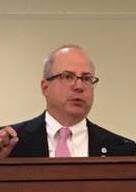
WHEN: Thursday, June 1, 2017 from 6:00 PM to 8:30 PM EDT
WHERE: Make Offices Clarendon
3100 Clarendon Blvd #200
Arlington, VA 22201
Register here
Learn about cybersecurity and power grid issues with author, Marc Elsberg, who will showcase his techno-thriller, Blackout and hear from other presenters in these exciting and fast-moving fields. Reviewed as “fast, tense, thrilling – and timely”, Blackout has been “highly recommended” by Lee Child, author of the bestselling Jack Reacher series.
Copies of Blackout will be available for purchase and author signing. Make great connections with clean energy and sustainability professionals. Attendees are eligible to win the Blackout Survival Kit door prize, which includes a special advanced reader copy of Blackout. Job seeker pricing also available. Ticket price includes program, beverages, and pizza.
Thanks to our sponsors:
Clean Energy Leader Sponsor: Darktrace
Environmental Leader Sponsor:
Venue Sponsor: Groupsense
Blackout Survival Kit Sponsor: Sourcebooks
Additional support from: ArlingtonGreen and WethePizza
Welcoming Remarks by Christian Dorsey, Arlington County Board Member

Christian Dorsey was elected to the Arlington County Board in November 2015. He represents Arlington on the boards of the Washington Metropolitan Area Transit Authority (WMATA) and the Metropolitan Washington Council of Governments. Additionally, he serves as one of three Arlington commissioners of the Northern Virginia Transportation Commission (NVTC). Dorsey is also a senior leader at the Economic Policy Institute, a think tank that promotes economic policies that foster broadly shared prosperity. Dorsey has lived in Arlington for over twenty years.
Meet our panel speakers

Marc Elsberg worked for many years as a creative director in advertising. His gripping and meticulously researched thriller is an international bestseller with more than 1.8 million copies sold worldwide and has been translated into many languages. His novel illustrates modern society’s interdependencies and vulnerabilities, dramatizing the consequences of a weeklong blackout caused by a hacker attack against European and U.S. power grids. The book established Elsberg as a sought-after dialogue partner for industry and politics and a renowned speaker across sectors.

Scott Aaronson has been with EEI since 2009 and leads EEI’s security and business continuity team where he focuses on industry security and resilience initiatives, establishing collaborative partnerships between government and electric companies—and across critical infrastructure sectors—that enhance security for the electric power sector. In addition to his role at EEI, Scott also serves as the Secretary for the Electricity Subsector Coordinating Council (ESCC). The ESCC serves as the primary liaison between senior government officials and industry leaders representing all segments of the sector. This partnership is held up as a model for how critical infrastructure sectors can work with government, yielding dramatic improvements in security and preparedness for the electric power sector and the nation.
Scott received a Bachelor’s Degree in journalism from the University of Colorado at Boulder for his undergraduate studies, and a Master’s Degree from The George Washington University Graduate School of Political Management. He also has received continuing education in executive leadership from the University of Pennsylvania’s Wharton School of Business.

Paul J. Feldman is a former Chairman of the Midcontinent ISO (MISO) and a former Board Director of the Western Electricity Coordinating Council (WECC). He was CEO of Columbia Energy and CEO of Utilicorp United and SVP of AES.
Presently, Mr. Feldman serves as a Board member at AMP Electric, Opus One, and EnergySec. He has been appointed to serve on the NCC and advise the Secretary of Energy on matters related to electricity and transmission systems. He also serves as a member of the National Renewable Energy Laboratory in Golden on the Energy Systems Integration Technical Review Panel. He also serves as an advisor to several energy companies.

John Morrill is the Energy Manager for Arlington County, Virginia. He leads a broad portfolio of work in energy management and energy policy, including energy efficiency and clean energy deployment for government operations, and implementation of Arlington’s Community Energy Plan. Morrill also supports the Office of Emergency Management as the lead for ESF 12, the Emergency Support Function for energy in Arlington.
In 2008, Morrill received a Climate Protection Award from the U.S. EPA for his work on the Arlington Initiative to Rethink Energy (AIRE), the county’s climate action program he helped establish and co-leads today. Morrill serves on the Board of the Virginia Energy Efficiency Council (VAEEC), and also on the Board of the Virginia Energy Purchasing Governmental Association (VEPGA).

Moderated by Elvin Yüzügüllü, who serves as a Project Manager for CSRA (previously SRA Int’l, Inc. and Sentech), Adjunct Professor for The George Washington University’s Engineering Management and Systems Engineering Department, and the Director of International Sustainability Programs at Leaders in Energy. She is the author of Synergies for Sustainable Energy.
 Dr. Yüzügüllü brings a comprehensive, multi-faceted systems view of issues related to the way we create, consume, and manage energy. Throughout her career, she has been involved in analyses of a diverse array of clean energy technologies and issues, including techno-economic evaluations, market penetration analyses, technology deployment planning, and decision-making model development for consensus building. Dr. Yüzügüllü’s extensive experience and interactions with the federal government, national labs, and industry has provided her with detailed knowledge on critical energy issues, as well as the capability to understand and resolve concerns related to divergent stakeholders in the energy industry. She has a Doctor of Science degree from George Washington University in Environmental and Energy Management and Bachelors and Masters degrees in Environmental Engineering.
Dr. Yüzügüllü brings a comprehensive, multi-faceted systems view of issues related to the way we create, consume, and manage energy. Throughout her career, she has been involved in analyses of a diverse array of clean energy technologies and issues, including techno-economic evaluations, market penetration analyses, technology deployment planning, and decision-making model development for consensus building. Dr. Yüzügüllü’s extensive experience and interactions with the federal government, national labs, and industry has provided her with detailed knowledge on critical energy issues, as well as the capability to understand and resolve concerns related to divergent stakeholders in the energy industry. She has a Doctor of Science degree from George Washington University in Environmental and Energy Management and Bachelors and Masters degrees in Environmental Engineering.
See also:
- Government sustainability experts inspire at GW (Energy and Sustainability Extravaganza at The George Washington University – February 2017)
- Unlicensed Wifi Spectrum and the Smart Grid (Event at the Edison Electric Institute – March 2016)
- Building a Responsive Energy Infrastructure for the Future (Event at the American Public Power Association – August 2015)



